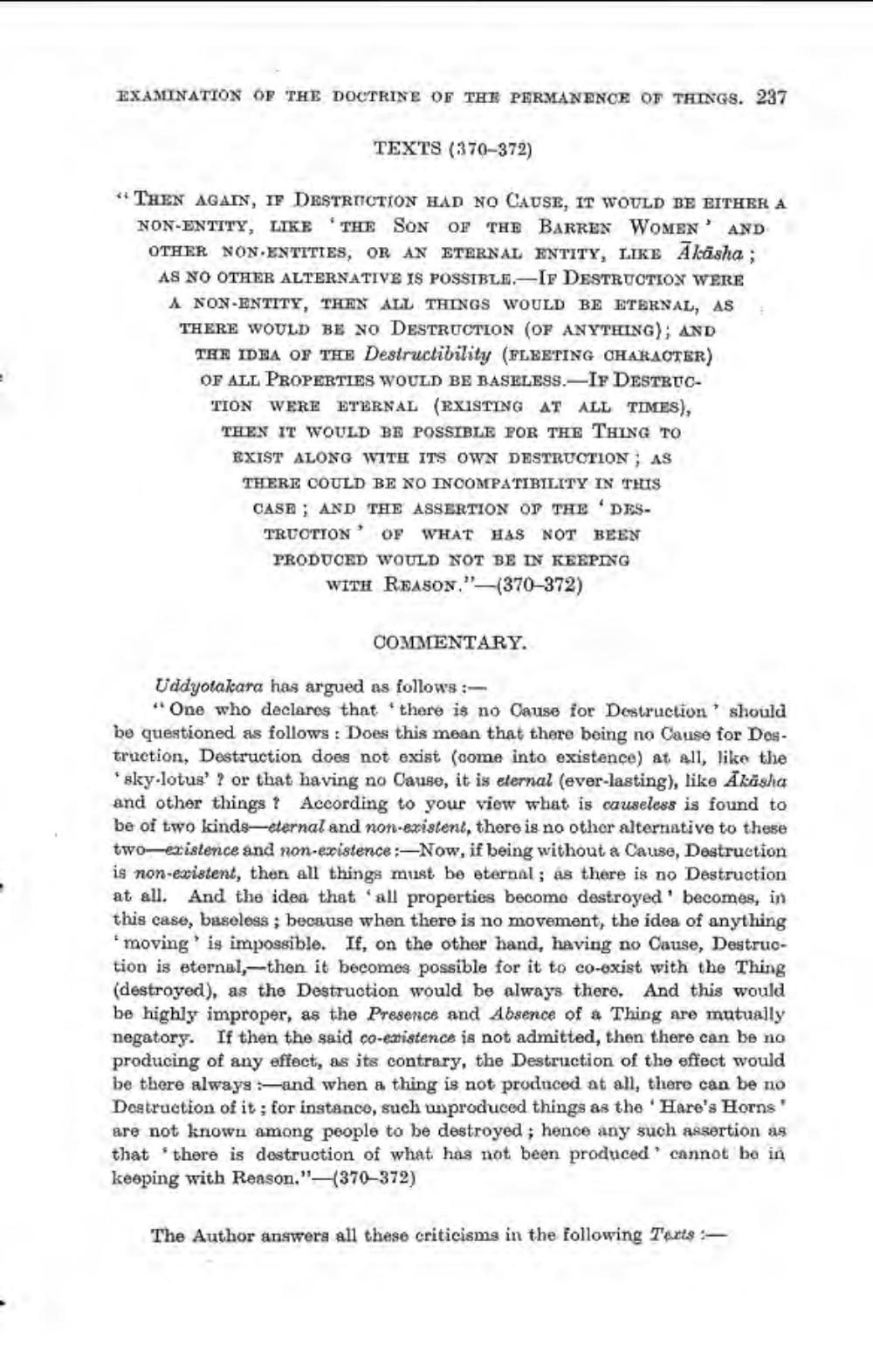________________
EXAMINATION OF THE DOCTRINE OF THE PERMANENCE OF THINGS. 237
TEXTS (370-372)
< THEN AGAIN, IF DESTRUCTION HAD NO CAUSE, IT WOULD BE EITHER A NON-ENTITY, LIKE THE SON OF THE BARREN WOMEN AND OTHER NON ENTITIES, OR AN ETERNAL ENTITY, LIKE Akasha ; AS NO OTHER ALTERNATIVE IS POSSIBLE-IF DESTRUCTION WERE A NON-ENTITY, THEN ALL THINGS WOULD BE ETERNAL, AS THERE WOULD BE NO DESTRUCTION (OF ANYTHING); AND TAN IDEA OF THE Destructibility (FLEETING CHARACTER) OF ALL PROPERTIES WOULD BE BASELESS.IF DESTRUCTION WERE ETERNAL (EXISTING AT ALL TIMES), THEN IT WOULD BE POSSIBLE FOR THE THING TO EXIST ALONG WITH ITS OWN DESTRUCTION; AS THERE COULD BE NO INCOMPATIBILITY IN THUS CASE ; AND THE ASSERTION OF THE DESTRUOTION OF WHAT HAS NOT BEEN PRODUCED WOULD NOT BE IN KEEPING
WITH REason."-(370-372)
COMMENTARY.
Uddyotakara has argued as follows:
**One who declares that there is no Cause for Destruction should be questioned as follows: Does this mean that there being no Cause for Dostruction, Destruction does not exist (come into existence) at all, like the *sky-lotus'? or that having no Cause, it is eternal (ever-lasting), like Äkäsha and other things 1 According to your view what is causeless is found to be of two kinds-eternal and non-existent, there is no other alternative to these two-existence and non-existence :-Now, if being without a Cause, Destruction is non-existent, then all things must be eternal; as there is no Destruction at all. And the idea that all properties become destroyed' becomes, in this case, baseless; because when there is no movement, the idea of anything moving is impossible. If, on the other hand, having no Cause, Destruction is eternal,- then it becomes possible for it to co-exist with the Thing (destroyed), as the Destruction would be always there. And this would be highly improper, as the Presence and Absence of a Thing are mutually negatory. If then the said co-existence is not admitted, then there can be no producing of any effect, as its contrary, the Destruction of the effect would be there always and when a thing is not produced at all, there can be no Destruction of it; for instance, such unproduced things as the 'Hare's Horns' are not known among people to be destroyed; hence any such assertion as that there is destruction of what has not been produced cannot be in keeping with Reason."—370-372)
The Author answers all these criticisms in the following Texts :




